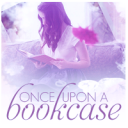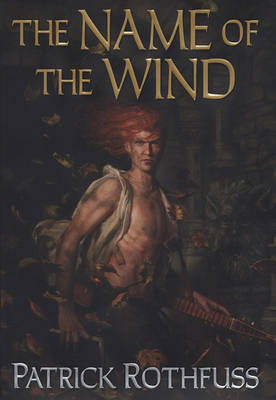
'This is a magnificent book' Anne McCaffrey
'I was reminded of Ursula K. Le Guin, George R. R. Martin, and J. R. R. Tolkein, but never felt that Rothfuss was imitating anyone' THE TIMES
'I have stolen princesses back from sleeping barrow kings. I burned down the town of Trebon. I have spent the night with Felurian and left with both my sanity and my life. I was expelled from the University at a younger age than most people are allowed in. I tread paths by moonlight that others fear to speak of during day. I have talked to Gods, loved women, and written songs that make the minstrels weep.
My name is Kvothe.
You may have heard of me'So begins the tale of Kvothe - currently known as Kote, the unassuming innkeepter - from his childhood in a troupe of traveling players, through his years spent as a near-feral orphan in a crime-riddled city, to his daringly brazen yet successful bid to enter a difficult and dangerous school of magic. In these pages you will come to know Kvothe the notorious magician, the accomplished thief, the masterful musician, the dragon-slayer, the legend-hunter, the lover, the thief and the infamous assassin.
- ISBN10 1429534826
- ISBN13 9781429534826
- Publish Date 27 March 2007
- Publish Status Active
- Imprint Daw Books
- Format eBook
- Language English
Reviews


Jo
Trigger/Content Warnings: This book features descriptions of ableist language, fire and burns, wounds and injuries, poverty and homelessness, beatings and violence against children, whipping, mention of suicide, a joke about suicide, mention of rape, assassination attempt, an attempt to set someone on fire, and massacres.
The Name of the Wind by Patrick Rothfuss was, for me, one of those books that everyone raves about, and you think, "I'll definitely read that at some point," but some point never comes. Except, this past Christmas I was given it as a Christmas present, and so finally go to read it! And I so wish I hadn't waited so long, because it was so good!
The Name of the Wind is the first book in The Kingkiller Chronicle. It's a weird one, because it feels like it starts in the middle of a story; in an inn in a small village, a group of locals are sitting together, listening to the eldest tell the story of a legend. We're not really introduced to anyone as the main character straight away, we're kind of just thrown in. There are a few strange happenings; one of the regulars has been attacked by some kind of beast that's much like a spider, but massive, and seemingly made of stone. The town gets kind of nervous, and people buy bits of iron to keep on them for protection. Meanwhile, Chronicler is travelling somewhere where at first he is robbed, and later heads towards a fire when he realises he's not going to make it to the town before night. But he soon realises the person at the fire is there for a reason: he knows bad creatures are coming. Soon they are attacked, and Chronicler passes out. He wakes up later at the inn - the man preparing to fight was the innkeeper, Kote. Not only that, he's exactly the man Chronicler was going to find. He is a scribe, and he believes Kote is actually the legendary Kvothe - the man most tend to think is a myth. He's come to ask if he can write Kvothe's story. And after some persuasion and discussion, Kvothe agrees; he will tell Chronicler his story over three consecutive days. The rest of The Name of the Wind is day one.
It's a coming of age story of a young boy who you know just has had some kind of incredible, because of how people speak about him. But his story is one of tragedy and hardship, and I mean serious hardship. I spent a good portion of the story just aching for Kvothe and everything he has to go through. I don't really want to talk too much about the plot because it's the kind of story where you don't really want anything given away. It starts with 11-year-old Kvothe as the son of the leaders of the legendary troupe of travelling entertainers, the Edema Ruh, and the story ends with at 15, with four years worth of pain and mystery behind him.
The Name of the Wind is kind of a slow burner, which, considering it's length at 672 pages, might put some people off. But it's actually completely gripping. At first, there are fits and starts of the magical side of things, with it coming much more of a bigger thing later in the story, but Kvothe only tells us what is important. Everything matters; every one of the experiences he shares lead to the man he is, sitting in the inn telling his story. And his voice! He has such an engaging voice! The story starts off in third person, but switches to first when Kvothe is dictating his life to Chronicler, and he just knows how to tell a story - which is unsurprising, being one of the Edema Ruh! Despite being a slow burner, I was never once bored. And you go through the whole gamut of emotions, as he experiences some of the most difficult of circumstances a child could have, but also joy and hope and amusement! Seriously, I was completely gripped, and never wanted to put it down.
What's also interesting is how every now and then, there will be an interlude; a pause in the telling of the story as some element of the story is discussed, or because Kvothe needs a moment. We also now something is going in the present, what with the spider-things, so at the back of your mind you're also wondering when things are going to go down. And towards the end of the book, things really start to pick up, both in the story Kvothe is telling, and in the present day. And mate, it's just incredible! Had I been frustrated by the slower pace earlier on, the end would have more than made up for it. And there's so much more to be told!
I can't begin to tell you how much I enjoyed The Name of the Wind! I am so desperate to jump right into the second book! I'm so looking forward to seeing where Kvothe's story goes next, and how more exciting it will become. If you're a fantasy fan, this is definitely not one to miss!

Witty and Sarcastic Bookclub

Kate (Blogging with Dragons)
Joanne Harris said, “Some books you read. Some books you enjoy. But some books just swallow you up, heart and soul.” Name of the Wind is one of these books and hands-down one of my all-time favorites. If you’re looking to get into the fantasy genre, but have no idea where to get started, look no further. This is THE book to read, even if you don’t like fantasy novels. It has everything—romance, mystery, revenge, magic, dragons, music, spells, wit, and a compelling hero and a great cast of side characters. I literally cannot say enough good things about it and have even read this 800+ paged book twice. But don’t let the page count intimidate you, this fast-paced book ensnares the reader, making the pages fly by and leaving you grasping for more. Even on my second reading, when I knew what happened, I stayed up past 5AM, reading over 400 pages in one sit down, unable to put it down until I finished the book.
In fact, I love this book so much that I am have trouble putting it into words. I love main character, Kvothe, a fiery and prodigal red-head set on revenge and on solving one of the biggest mysteries of his time, the mythical and deadly Chandrian. With an undying thirst for knowledge, and a talent for music, barbs, and causing trouble, Kvothe’s life is never dull. Where other heroes are often too perfect, Kvothe is a young genius that is all too-human. Author Patrick Rothfuss excels at breathing life into all of his characters, especially Kvothe. He makes mistakes—picking fights with a rich and powerful student named Ambrose, falling hopelessly in love with the wrong girl, taking on more than he can possibly handle, constantly failing to think things through, being completely clueless when it comes to women, and mouthing off when he shouldn’t. Kvothe is flawed, but so utterly charming and intelligent that the reader has no choice but to root for the teenager that we know becomes a legend himself.
And Rothfuss deftly weaves the story of young Kvothe with the reality of older Kvothe, who narrates his life’s story, setting his own legend straight once and for all. The mystery of why older Kvothe, hides away as an innkeeper named Kote in the middle of nowhere, combined with a sense that evil is rapidly spreading, is just as interesting as the story of his youth and the secrets that younger Kvothe tries to solve in his quest for vengeance. Readers can only wonder at how all the pieces of the past and present fit together and what it means for both Kvothe and his world. This heady combination delivers a high tension that pervades the book and renders it impossible to put down. For the first time ever, I was not unhappy when the book switched points of view between young Kvothe and older-disguised-Kvothe-as-Kote. This is something that always kills me in other fantasy novels, like Lord of the Rings.
But Kvothe isn’t the only character worth loving in the book. The rest of the cast of characters is just as lovable. There is Auri, the mysterious girl who lives in the tunnels beneath the University; Willem and Simmon, Kvothe’s best friends and partners in crime; Master Elodin, the kooky professor of Naming who constantly makes me burst out laughing while reading; Devi, the genius moneylender known as “Devi the Demon,” who was expelled from the University for mysterious reasons, but can match Kvothe in knowledge and skill; Fella, the gorgeous Scriv of the Archives, who isn’t afraid to owe Kvothe a favor; Bast, Kote’s student in the present, who is much more than he seems; and of course, the seductive and enigmatic Denna, who has captured Kvothe’s heart without even trying. Rothfuss, in these side-characters, creates more complex and developed characters, than main characters of other novels I have read and effortlessly shows off mastery of his writing craft.
Another reason that I love this book so much is that it puts me to mind of one of my favorite video games, Skyrim, with its “College of Winterhold,” where a player can travel to learn magic and unlock the secrets of the arcane. Those familiar feelings of wonder and magic come rushing back to me as I read Rothfuss’s masterpiece once again. If you haven’t this read book yet, and even if you aren’t typically a fan of fantasy novels, I wholeheartedly urge you to buy Name of the Wind and the second book in The Kingkiller Chronicles, The Wise Man’s Fear, immediately. You won’t regret it!

ammaarah
"I trouped, travelled, loved, lost, trusted and was betrayed. Write that down and burn it for all the good it will do." (Kote/Kvothe)
I have a reading bucket list - books that I want to read someday, but are too huge, too hyped or too daunting. Once in a blue moon, an opportunity presents itself where a book on my bucket list is staring right at me and telling me to read it. When I saw The Name of the Wind in my university library, I was helpless and couldn't do anything but get it loaned out.
Before I start this review, I have one piece of advice (But, my advice is seldom good advice, so take it with a grain of salt... and sugar). Don't let the first few pages of The Name of the Wind put you off reading it. The first three chapters are slow, boring and have lots of detail and info dumping, but they are necessary and the story picks up afterwards.
The Name of the Wind starts off describing events surrounding the Waystone Inn. The owner of this inn is a man named Kote. When approached (That's the only non-spoilery word I can think of to describe how they meet. It's not entirely accurate.) by a Chronicler, a scribe who writes down stories, we learn that Kote is Kvothe - known to some as a legendary hero and to others, a demon. The Name of the Wind is a story within a story where Kvothe narrates the story of his life, from the time that he was a young boy till the age of 15-16. However, Kvothe's autobiography is not complete and I have so many questions and theories such as Why did Kvothe change his name? Why is he an innkeeper? Who or what is he hiding from? and many other spoilery questions and I'm dying to get them answered.
The world-building in The Name of the Wind is downright awesome. There are so many different areas with different types of people, nationalities, ways of life, languages, beliefs and currencies. The world is intricate, detailed and complex, but it isn't confusing. The magic system is original. The magic in The Name of the Wind is called sympathy and to an extent, is built around scientific information. The magic is grounded in reality and is understandable, but still has a mysterious quality.
I appreciate three things in The Name of the Wind:
1)The whole idea of a university in which magic can be studied.
2)The descriptions of music which makes it feel tangible.
3)A dragon that eats trees!
The Name of the Wind wouldn't be the same without its main character, Kvothe. He is the literal definition of the perfect guy. He is handsome, smart, witty, charming, is good at everything that he does, learns things quickly, can sing, act and play instruments - there is nothing that he can't do. While I don't like this aspect about Kvothe's personality, it's something that I can easily deal with. Kvothe is still a flawed character. He is temperamental, stubborn, reckless and sometimes plain stupid. There's also a divide between the narrator of the story, Kote, and the boy that he used to be, Kvothe, and it's difficult to imagine what caused this change in his characterization and why he is now a shell of his former self, while also understanding that it's entirely possible.
"The best lies about me are the ones I told." (Kote/Kvothe)
Kvothe does steal the show in terms of characterization, but most of the secondary characters are interesting and I have many questions about them too. One gripe is that the female characters are less developed than the male characters. My favourite secondary characters are Elodin, because he is crazy, Auri, because there's something whimsical about her and Devi, because she seems like a badass. My least favourite character is Denna, Kvothe's crush and potential love interest. I don't understand what Kvothe sees in Denna nor do I feel any chemistry between her and Kvothe. Denna also reminds me of Daisy Buchanan (their names both begin with the same letter. Coincidence?) from The Great Gatsby and I dislike Daisy with the fire of a thousand suns.
The Name of the Wind has an awesome world and magic system and an interesting main character. This book leaves you with so many questions and theories, some of which are answered, but most of which aren't (But, will be hopefully be semi-answered in The Wise Man's Fear) I had a fun time reading The Name of the Wind.
"Words are pale shadows of forgotten names. As names have power, words have power. Words can light fires in the minds of men. Words can wring tears from the hardest hearts. There are seven words that will make a person love you. There are ten words that will break a strong man's will. But a word is nothing but a painting of a fire. A name is the fire itself." (Master Elodin)

lisacee

nannah
(2.5)
The book begins as a scribe visits an inkeeper who, of course, is much more than your average inkeeper. He's this legendary Kvothe, who's done all this and that and who's all powerful, and the scribe has come to write down his story. So this book is the first part of Kvothe's story told in Kvothe's voice.
The writing is beautiful, and I'm easily absorbed into the story. I find myself thinking about the book when I'm not reading, which is great! But then there's so much I didn't like about it that overshadows what I liked about the book.
Kvothe is haughty as all hell and unbearable as an MC because of it. Most of the time, I can't stand him. The only character I began to like was Bast, one of the fae, who had a character that wasn't just limited to "jovial supportive character talking about women" or "empathizing supportive character talking about women". Sure he talks about women, but there was actual depth to him other characters lacked--their world was limited to their interactions with Kvothe. And yeah, yeah, it makes sense because this is Kvothe telling the story, but as a reader it wasn't such a fun experience, especially when the book is over 600 pages.
There's also a disgusting lack of women here--it's even pointed out by Bast at one point. If it's even pointed out by a character within your story, you should know you have a fundamental problem. Sure, there's the "love interest", Denna, who comes and goes because she's so independent, and Devi, a shady businesswoman, but one or two strong women in a story with, what? 25+ male characters does't make up for the difference.
Because for real, every girl or woman Kvothe meets is measured by how beautiful she is. When one girl sings beautifully while he plays, he naturally tries to find her afterward in the crowd. But the only girls he considers are the beautiful ones, because only pretty girls can have beautiful voices, right? Women are talked about like objects from the very beginning, and by every male character. God, it's wearying.
There's also a marked lack--and by that I mean absolutely zero--of nonwhite characters. How does this entire world exist but contain only white people? There's even people called the Ruh who have cultural identities based off nonwhite cultures in our world, but in Patrick Rothfuss's world . . . they're white. That's such a disgusting use of cultural appropriation.
So I'm sorry, friend, what I enjoyed didn't make up for what I didn't enjoy. :(

chrssym

Amber

